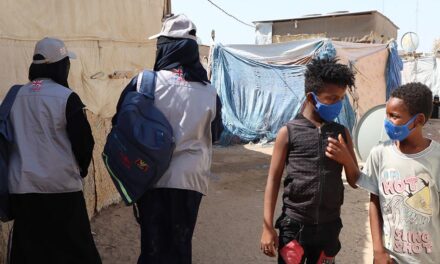In 2023, Open Health Stack (OHS) was launched with the mission to bridge healthcare gaps in underserved regions by providing developers with open-source tools to build digital health solutions. With over half of the global population lacking access to essential health services, mobile-based solutions have emerged as a vital tool for improving care, especially in areas where connectivity and resources are limited.
Since its launch, OHS has made significant strides in supporting developers worldwide, particularly those working in low-resource settings. By offering secure, offline-capable solutions, OHS enables healthcare workers to deliver quality care, even in regions with connectivity challenges. Here are five ways OHS is empowering developers to make a difference in global health:
1. Accelerating Development and Unlocking Insights in Mobile Health Apps
OHS has enabled developers to create innovative health solutions that offer data insights and analytics to inform healthcare decision-making. One such example is Ona, which developed digital health apps to help health workers transition from paper-based records to digital solutions. By leveraging OHS, Ona was able to speed up development and adopt interoperable data standards such as HL7 FHIR, which enhanced care delivery in underserved communities.
Similarly, OHS has helped organizations like mPower and ITECH-DIGI enhance their healthcare solutions. mPower used OHS to accelerate app development and improve service quality in Bangladesh, while ITECH-DIGI integrated OHS-powered analytics for data visualization and insights within their electronic medical records system.
2. Fostering Collaboration and Sharing Digital Healthcare Best Practices
OHS has been instrumental in advancing digital healthcare best practices by promoting interoperability standards and open technologies. In collaboration with the World Health Organization (WHO) and other partners, OHS hosted the inaugural Open Digital Health Summit in December 2024. The event brought together over 300 developers and technical architects from 45 countries to share knowledge and address the challenges of adopting standards-based digital health solutions.
3. Enhancing Developer Skills Through Workshops
To further support developers, OHS has organized numerous workshops worldwide, equipping developers with the skills needed to build effective digital health applications. Notable initiatives include a series of bootcamps held in partnership with Kabarak University in Kenya, aimed at IT students and emerging innovators. In India, OHS hosted a workshop at the country’s largest digital health conference, offering hands-on coding sessions and practical experience in building on OHS components.
4. Exploring New AI Capabilities for Healthcare Solutions
Recognizing the potential of AI to revolutionize healthcare, OHS is also exploring how AI can enhance digital health solutions. Through collaborations with Google and other partners, OHS has facilitated access to open-weight AI models like the Health AI Developer Foundations, making it easier for developers to build AI-powered healthcare applications. The OHS team continues to engage with the developer community to identify AI needs and build the infrastructure required to support AI-driven innovations in healthcare.
5. Building a Thriving OHS Community
OHS is not just a set of tools; it’s a growing global community of developers committed to advancing digital health. By listening to feedback from developers, OHS continues to evolve, introducing new technical features to improve security and ease of use. The launch of an educational video series has made it even easier for developers to get started with OHS, further empowering them to create innovative health solutions.
As OHS contributor Khyati Vyas from ArguSoft India shared, “Working on Open Health Stack has been an eye-opening experience for me. It’s inspiring to collaborate on an open-source platform that empowers innovation and improves health data accessibility for better patient outcomes.”
Looking Ahead to 2025 and Beyond
As we look toward 2025, OHS is poised to expand its impact by continuing to collaborate with global partners and the digital health community. The goal is to lower barriers for developers and innovators, enabling them to create next-generation digital health solutions that improve healthcare outcomes for people worldwide.
For more information on how to get involved with OHS and contribute to the future of digital health, visit Open Health Stack.
By empowering developers and fostering a collaborative ecosystem, Open Health Stack is helping transform the way healthcare is delivered in underserved communities, paving the way for a healthier future for all.











